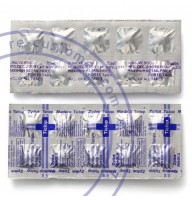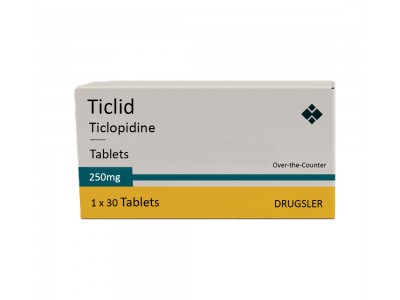Ticlopidine, marketed under the brand name Ticlid, is an antiplatelet medication primarily used to prevent blood clots in individuals at risk of thrombotic events, such as strokes or heart attacks. While effective in its intended use, Ticlopidine is associated with potential health considerations and precautions due to its side effects and interactions.
One of the significant concerns with Ticlopidine is its potential to cause hematologic side effects, such as agranulocytosis (severe decrease in white blood cell count), neutropenia (low levels of neutrophils), and thrombotic thrombocytopenic purpura (TTP). These conditions can weaken the immune system and increase the risk of serious infections or clotting disorders. Due to these risks, Ticlopidine is generally reserved for patients who cannot tolerate other antiplatelet medications or who have not responded adequately to them.
Additionally, Ticlopidine can cause gastrointestinal side effects like diarrhea, nausea, and stomach pain. Other less common side effects include headache, dizziness, and skin rash. Regular monitoring of blood counts and liver function tests is often recommended during treatment to detect any potential adverse effects early.
Ticlopidine also has interactions with several medications, including anticoagulants, nonsteroidal anti-inflammatory drugs (NSAIDs), and proton pump inhibitors (PPIs). These interactions can affect the effectiveness of Ticlopidine or increase the risk of side effects, emphasizing the importance of careful medication management and monitoring by healthcare providers.
Due to these considerations, the use of Ticlopidine requires careful assessment of the patient's overall health status, potential risks versus benefits, and consideration of alternative treatments when appropriate. Patients should be educated about the signs of potential side effects and instructed to report any unusual symptoms promptly to their healthcare provider.
In summary, while Ticlopidine is effective in preventing blood clots in certain patients, its use is limited by its potential for serious side effects and interactions. Healthcare providers must weigh these factors carefully when prescribing Ticlopidine and closely monitor patients during treatment to ensure their safety and well-being.

